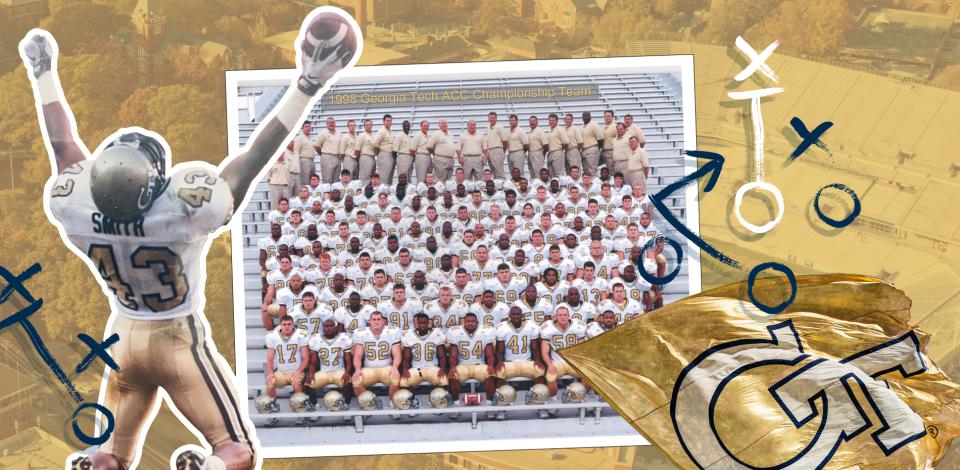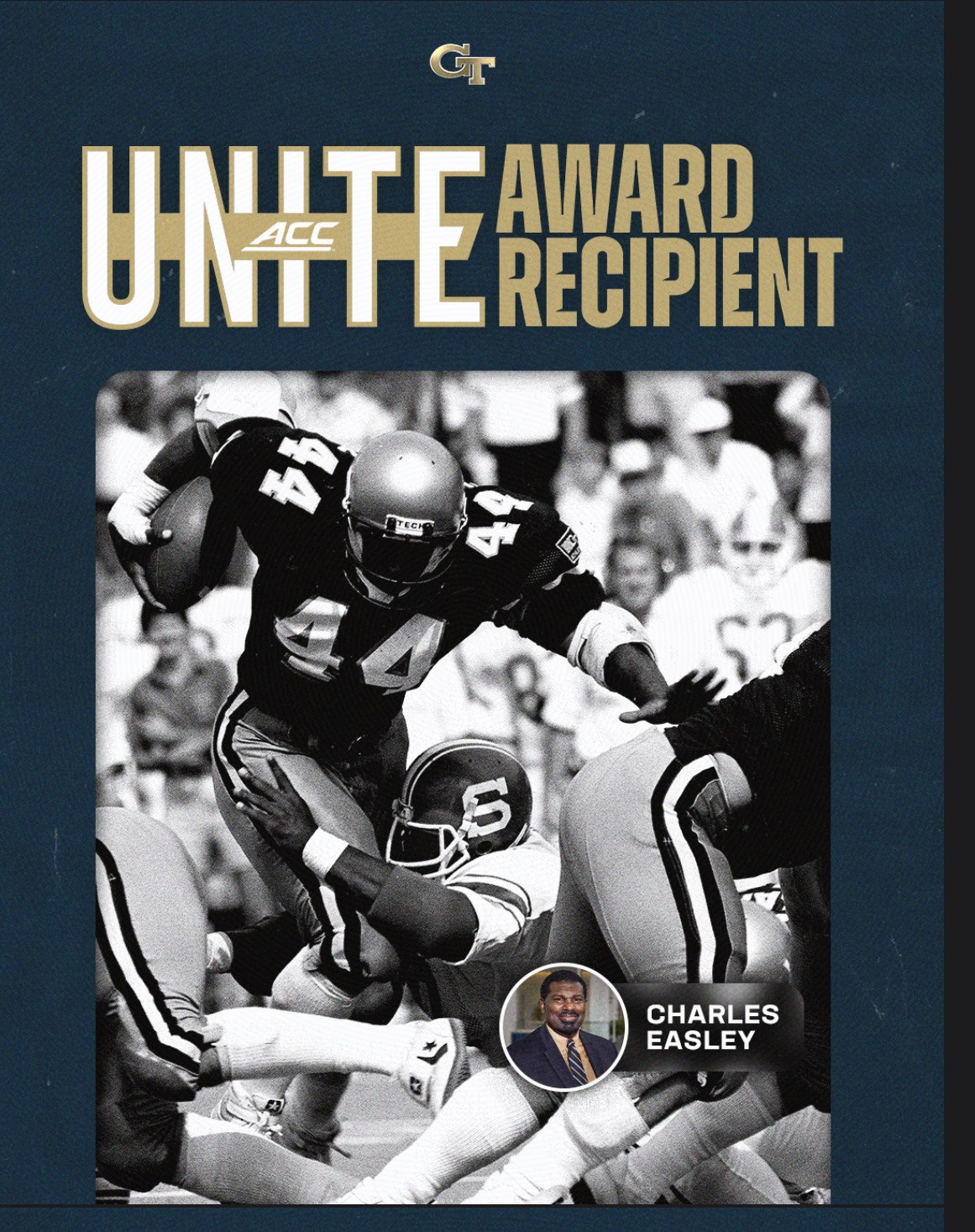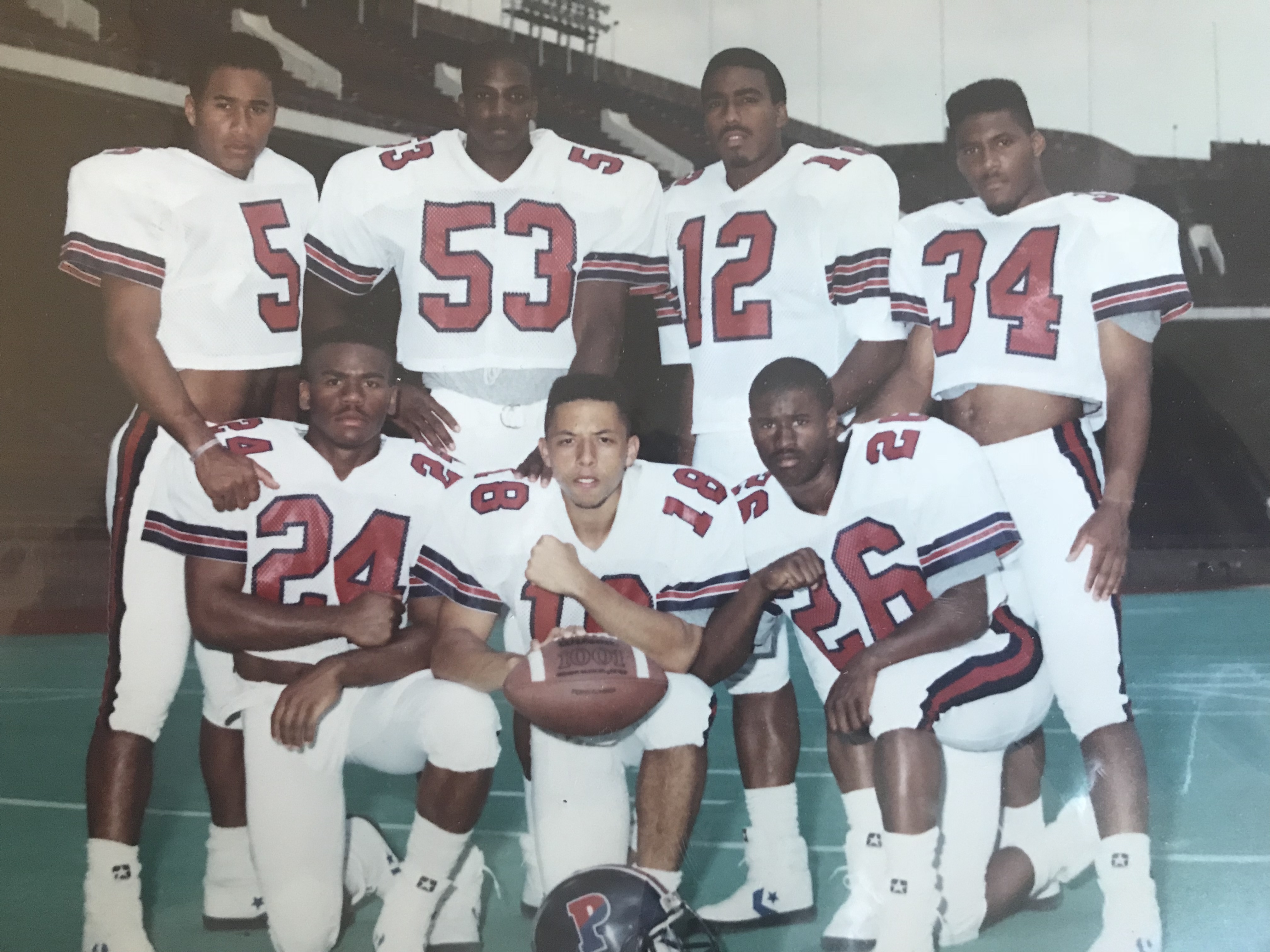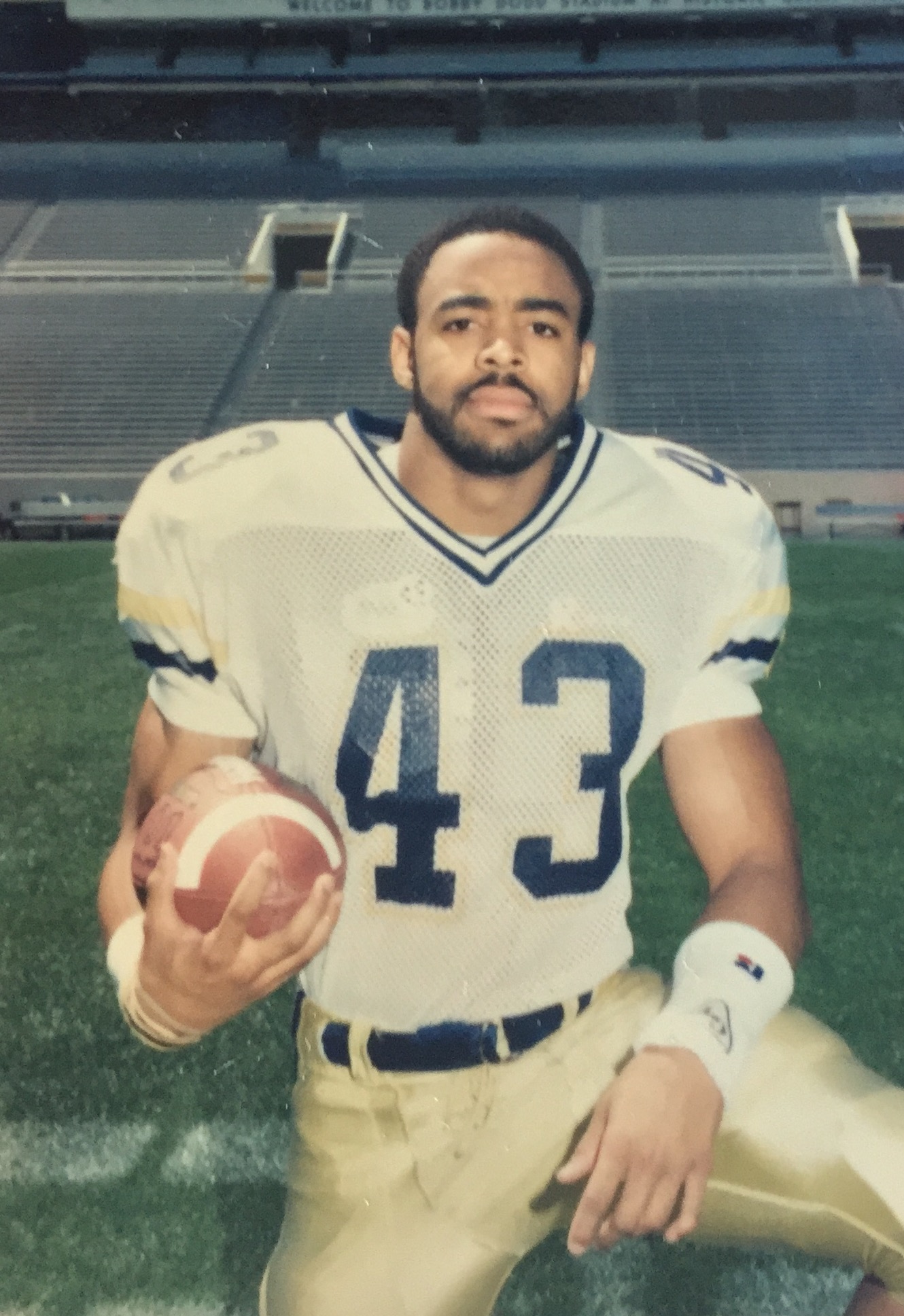From the Football Field to the Workforce
How playing competitive sports prepares you for professional success

Despite what 80s movies might suggest, the jock isn’t always the antithesis of the good student. In fact, the skills and discipline learned in competitive sports can set athletes up for success both in the classroom and the workplace.
Collegiate sports teach perseverance, encourage teamwork, and provide a structure that promotes discipline. Student-athletes learn to push their bodies and minds to the limit, preparing them not only for the big game but also the big test or big project at work. Competitive sports also teach students how to tie their success to that of a group effort and remain oriented to the task at hand. Several Georgia Tech Professional Education (GTPE) instructors who were collegiate athletes shared their thoughts on how playing sports has helped them excel in their professional careers.
Teamwork
A Gallup study, based on surveys of college graduates from 1975 to 2019, found that 39% of graduates who were NCAA athletes went on to earn an advanced degree, making them "1.3 times more likely to earn a postgraduate degree than their non-athlete counterparts." One of the key indicators Gallup identified for this discrepancy between student-athletes and non-student-athletes is the built-in mentorship and support system that collegiate sports provide their players.
Chuck Easley, program manager and instructor for the Georgia Tech Supply Chain & Logistics Institute and former running back for the Georgia Tech Yellow Jackets, shared that the support system a team offers helps student-athletes "develop a collective mentality around how to win. To move from just a group to a team, you must truly understand what teamwork requires and looks like."
Understanding what good teamwork really looks like may seem obvious, but anyone who has participated in a group project understands that not everyone sees teamwork the same way. Indeed highlights communication, honesty, and collaboration as just some of the components of good teamwork. The experience of receiving critical feedback and practice incorporating it to the betterment of the team helps athletes and professionals alike.

Networking
Collegiate athletes also have the advantage of increased opportunities to develop their networking skills.
A paper published by the National Bureau of Economic Research found that from the 44 Ivy League colleges studied, during their careers athletes significantly outperform non-athletes in cumulative seniority, peak seniority, cumulative wages, and peak wages.
According to Science Direct, people who actively participate in networking are 72% more likely to be promoted.
"My involvement in sports broadened my network and honed my interpersonal skills by forcing me to work with a diverse group of individuals from varying backgrounds, nationalities, and schools of thought,” says Mustafa Shabazz, a lecturer with Georgia Tech Project Management and former football player for the University of Pennsylvania, “the collaboration required to work together towards a common goal, gave me and my teammates the competitive edge needed to survive and thrive in our professional careers.

Discipline
Discipline is also necessary for anyone attempting to succeed on or off the field. Everyone has heard the saying "practice makes perfect" but how much practice? NCSA, a collegiate athlete recruiting company, detailed a day in the life of a Division I football player. On average these students will spend at least five hours a day participating in some form of practice or preparation.
"Playing football at Georgia Tech taught me the art of discipline, specifically the ability to do things when I didn't want to," said Kofi Smith, lecturer in the School of Building Construction and Professional Master's in Occupational Safety and Health, and four-time Georgia Tech Football letterman, when asked how football helped shape him as a professional. "Football taught me how to show up early and stay late, how to place people in the best positions to maximize their collective skillsets, how to see winning and losing through the same lens, and how to outwork everyone but compete only against the man in the mirror.”

Resilience
Setbacks are inevitable in competitive sports. They can come in the form of game losses, injuries, transferring teammates, and more. Resilient athletes and students understand that each obstacle is an opportunity to learn and evaluate the performance that led to the disappointing outcome.
"To experience defeat or poor performance can be devastating," said Easley, "yet to develop a plan, examine how you can improve, openly assess the team, then execute the plan and emerge victorious/successful in academics and athletics is the blueprint for continuous improvement in any walk of life." Students and athletes who are disciplined and dedicated to their craft understand that success doesn't come without work.
Easley suggests that traits developed as an athlete like taking the time to understand an assignment, preparing, anticipating issues, and responding accordingly can enable anyone to then execute an assignment and build a successful professional career.
While most of us may not have had the opportunity to play collegiate sports we can learn from the lessons these former student-athletes and GTPE faculty shared – lessons that help them stay motivated and relevant in the workplace just as they did on the football field. Shabazz – who traded his helmet for a podium many years ago but still leans on his athletic training – shared, "even to this day I still take that same collaborative and competitive energy into pick-up games at the YMCA."

